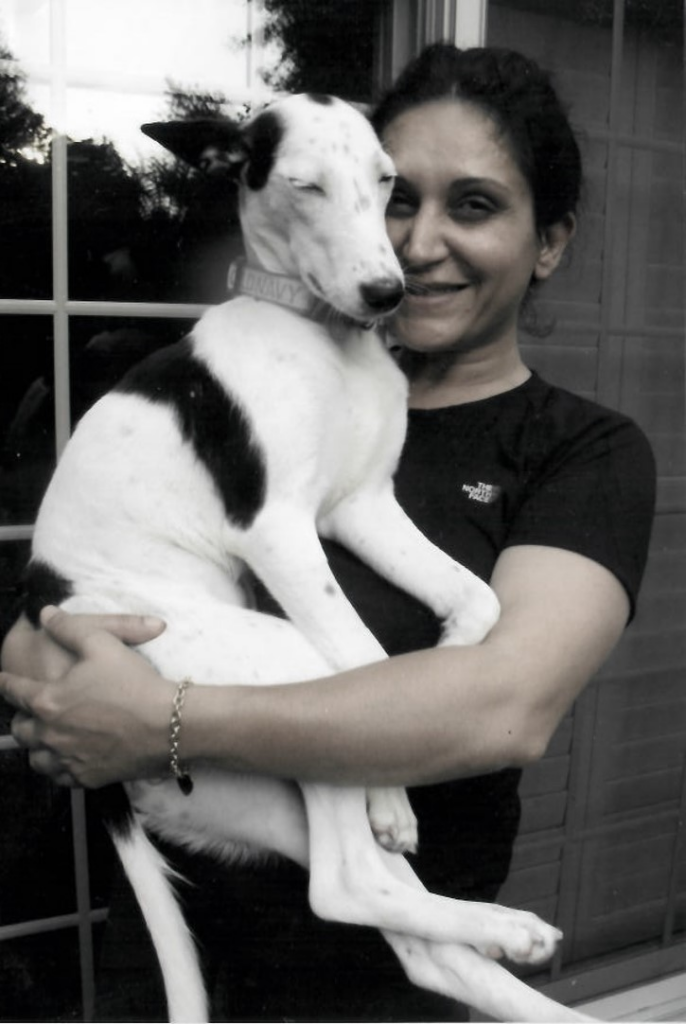by Matthew Krecic, DVM, MS, MBA, DACVIM.
Copyright © 2024 Matthew Krecic.

While Azadeh “Azi” Chegini was visiting friends in Otavalo, Ecuador, in April 2016, Azi found a dog with two broken legs who appeared to be living in the streets.
Azi, the most compassionate person I know, picked up the dog — it was clearly suffering from pain — into her arms and promised to return to Otavalo with help. She left the dog with animal protection in nearby Quito before she had to return to northern Virginia, her residence and sales territory for the animal health organization Zoetis.
On that flight, Azi asked herself, “Isn’t there anything I can do to assist these animals?”
Her answer: yes. As a result, she established The Dogs of Otavalo.
The mission of Dogs of Otavalo is to improve the lives of the people and pets residing in the Otavalo area by providing quality veterinary care, training, and education. Its vision is to create a safe and comfortable community where people and animals can live in health and harmony.
Dogs of Otavalo, through Azi’s leadership, partnered with the Otavalo veterinary clinic — Santé Clínica Medico Veterinaria — and the US-based Caring Hands Animal Support and Education (CHASE), a nonprofit organization dedicated to increasing awareness of and providing support for animal welfare initiatives. Additionally, Azi partnered with Zoetis South America, which year after year has donated vaccines, flea/tick/heartworm preventives, antibiotics, and other necessary items, as well as availed local employees to participate alongside the Dogs of Otavalo team members.

Since Azi’s first visit, more than 4,500 animals have been helped through Dogs of Otavalo; this includes more 2,500 animals that have been spayed and neutered. Spay/neuter surgery is critical for these dogs due to the surgery’s benefits for health and safety, behavior, and community.
For female dogs and cats, the risk for mammary gland cancer, ovarian cancer, and uterine cancer is reduced or eliminated. For male dogs and cats, the risk for prostate cancer is reduced and for testicular cancer is eliminated. Dogs and cats that are spayed/neutered frequently make better pets, especially because both aggressive and roaming behavior is reduced. Lastly, spay/neuter surgeries prevent the births of unwanted puppies and kittens, thereby helping to control the animal overpopulation, which may lead to disease spread and euthanasia.
During the 2023 trip, which occurred December 9-13, 242 dogs and cats were spayed and neutered — all at no-cost — at Santé Clínica Medico Veterinaria, and more than 200 pets of community residents received no-cost vaccination and, when necessary, other veterinary care.

For five days of work, these numbers may seem low compared with high-quality, high-volume spay/neuter clinics (many perform 100 spay/neuter surgeries per day), especially given the high demand and need for veterinary care in Otavalo and surrounding communities, and given that there were 23 US-based volunteers, including Azi. However, Azi remarks that this work is more than the numbers; it is also about being there every year and providing the best care.
“Our goal has never been to do more every year, but more, we wanted to be consistent. Ever since our first year with helping a total of 330 animals, each year afterward we have focused on doing as much as we can if we can deliver the same quality of medicine.”
Otavalo, with its population of 42,000 residents, is best known for its indigenous market, especially on Saturdays, when farmers and textile workers sell their animals and handicrafts.
Education of community members and children at school has also been an important part of the mission for the Dogs of Otavalo. Azi and her team have built relationships with the Otavalo police department and the mayor’s office to help to notify residents of the upcoming spay/neuter and vaccine/veterinary care clinics. Farmers, owing to knowing about past clinics, even walk several kilometers to the site of these clinics with their dogs carried over their shoulders.
Azi says she and her team are already planning their next trip for December 2024. They are currently looking for volunteers — veterinarians, veterinary paraprofessionals, and nonveterinary individuals. For more information, please contact Azi at azadeh.chegini@zoetis.com.
Read this article by Kristen Cooley on DVM360 from 2017 about The Dogs of Otavalo.
About the Author
Matthew Krecic, DVM, MS, MBA, is a board-certified small animal internal medicine specialist with the American College of Veterinary Internal Medicine (https://vetspecialists.com/) and a medical writer, editor, and back-of-the-book indexer with his freelance business K-File Medical Writing and Editing Services, LLC. Dr. Krecic also provides veterinary care to homeless animals at animal shelters in Chicago, where he is based. He may be reached at mkrecic@k-filemedsvcs.com.

1 thought on “Azi Chegini and The Dogs of Otavalo”